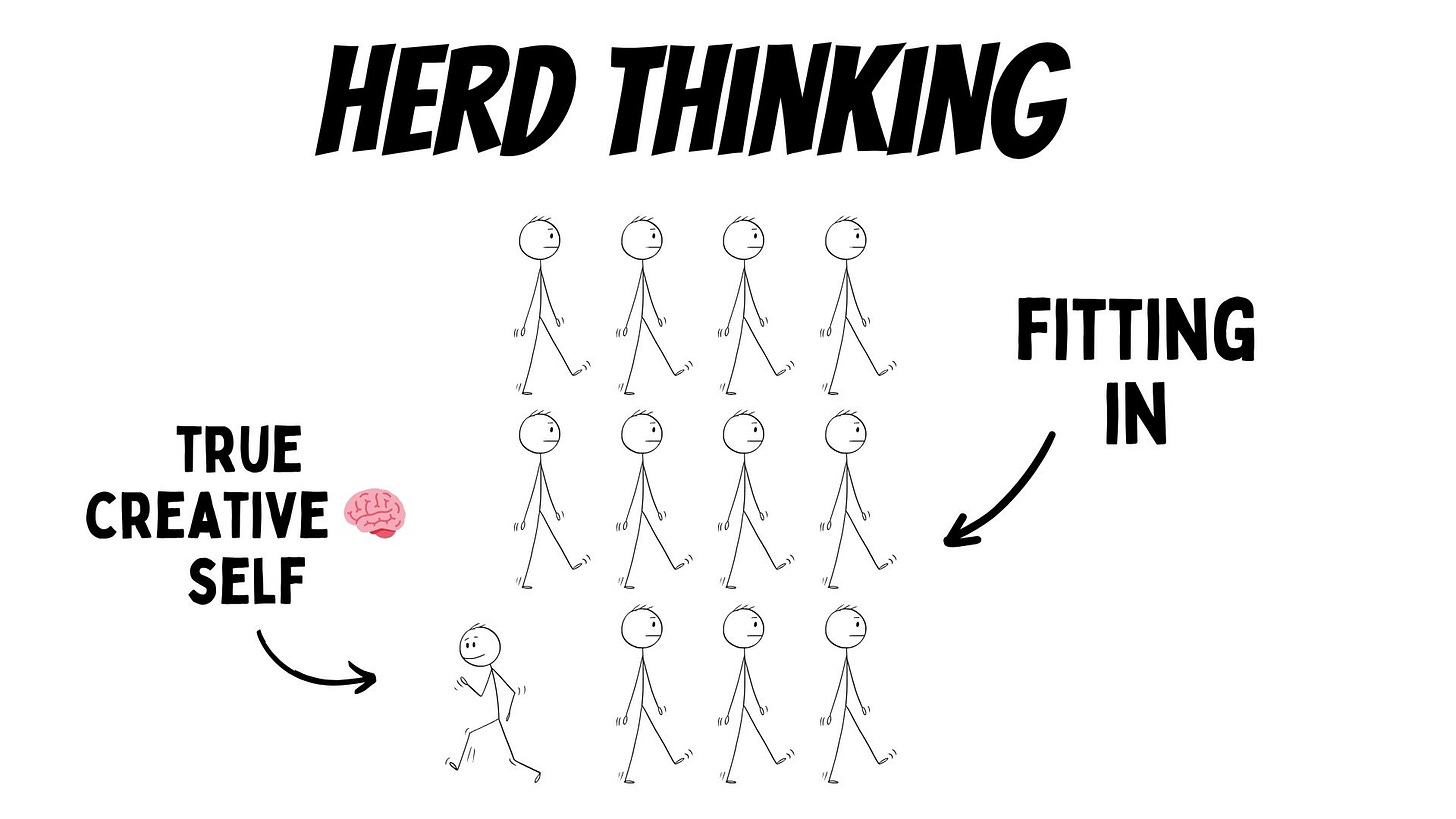🤯 Herd Thinking
And The Hidden Creative Ache Within You
The Mysterious Plane Crash
In 2010, a plane crashed in the Congo, killing 20 of the 21 passengers.
The crash was a mystery.
No mechanical faults. Plenty of fuel. Good weather and visibility.
Investigators were baffled.
The sole survivor was rushed to the hospital in a coma.
The black box gave no answers.
Weeks later, the survivor woke.
A passenger had smuggled a baby crocodile in their hand luggage.
On approach to landing, it escaped.
The air stewardess saw it in the aisle.
She ran toward the cockpit.
In panic, all but one passenger followed.
The sudden weight shift caused the plane to nosedive.
The pilots shouted for everyone to return to their seats,
but the angle was too steep.
Moments later, the plane smashed into the ground.
The crocodile survived.
So did the passenger who stayed in his seat.
The crocodile wasn’t attacking.
It was frozen with fear.
But no one was thinking.
They were copying what everyone else was doing.
A morbid metaphor for herd thinking.
Everybody copies each other to fit in.
The Law of Equivalent Exchange
We all want to fulfil our creative potential.
We all want to create work that matters.
Most think this is something we gain.
But it’s not.
It’s something we must sacrifice.
Creative success demands we give up the safety of fitting in.
Authentic creativity — we sacrifice the urge to please the audience.
Creative innovation — we sacrifice our need for perfection.
Flow — we sacrifice control.
Success — we sacrifice our need to avoid failure.
But the biggest sacrifice to creative success is the fear of being seen.
It’s beyond ironic that the most gifted creatives fear being seen the most.
We want to be truly liked by everyone,
loved truly by someone,
but we can’t truly connect with anyone
while hiding parts of ourselves away.
The creative disease lies in the space between our fear of being seen and fear of NOT being seen.
This is your hidden inner conflict.
The dull ache that holds you back.
This is why you get stuck — confused and paralysed by opposing fears.
👉 Our long-term fear is dying without fulfilling our creative potential.
👉 Our short-term fear is being seen.
That’s the disease.
The perfectionism, the fear of failure, the writer’s block, the procrastination, they’re just symptoms of the disease.
But they cause existential creative damage.
Jean Paul Sartre wrote,
“I have led a toothless life. I have never bitten into anything.
I was waiting. I was reserving myself for later on,
and I’ve just noticed that my teeth have gone.”
Bird Cage
We’re like a bird that’s lived its whole life in a cage with the door open.
It longs to be free
but fears it’s not good enough to fly.
So it stays.
Stuck.
Paralysed between the desire to be free
and the fear of not being good enough to fly.
That’s our creative shame.
It’s knowing we have huge potential
but fearing we’re not good enough to fulfil it.
So we stay stuck. Spinning our wheels in decision paralysis.
Once you see this,
you can’t unsee it.
The good news is that once we can see the root problem,
we start to learn ways to navigate it.
Sometimes we go around it.
Sometimes we go through it.
Our weirdness is our creative potential.
Don’t hide your weird.
Integrate it.
Be more weird.
And be more free.



